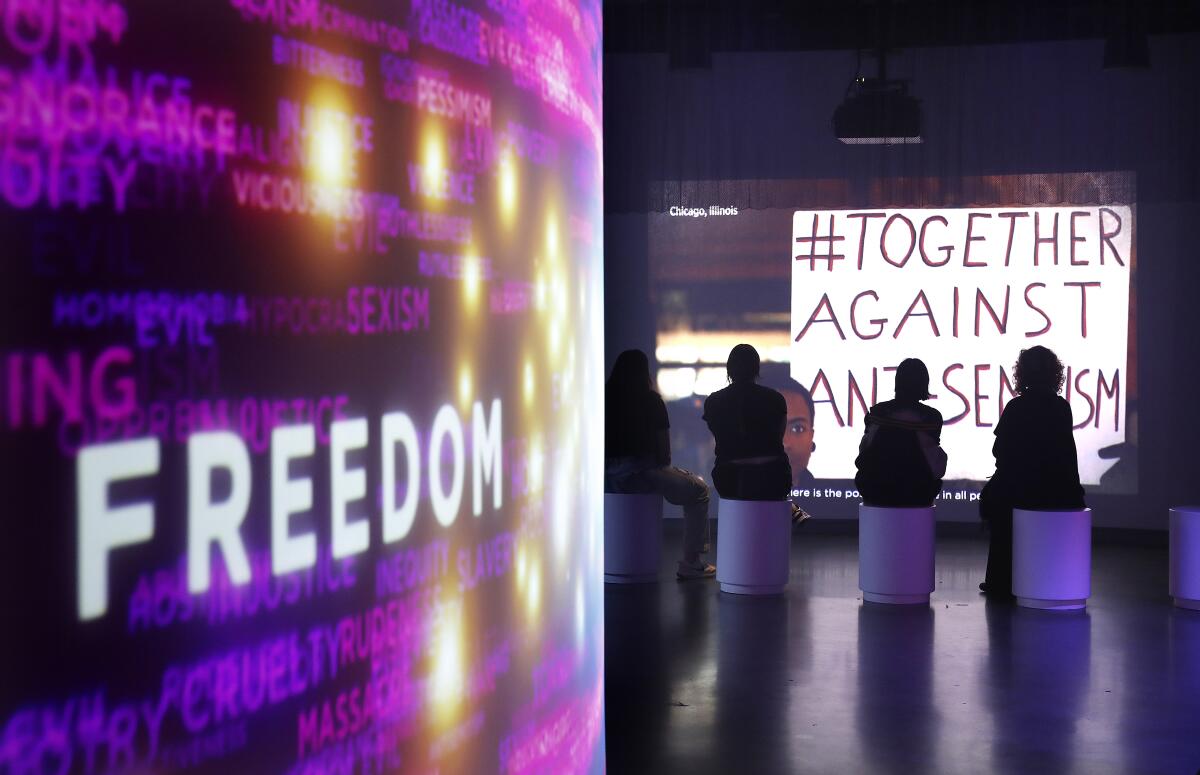Letters to the Editor: ‘They won’t sell to Jews’ -- readers share stories of antisemitism in L.A.

- Share via
To the editor: I am a Jew of Jewish parents. Relying on the G.I. Bill, my parents tried to buy their first home in 1955. I was 6 years old. They found a new tract in Hacienda Heights. (“Antisemitism has a long history in Los Angeles,” column, Jan. 5)
We happily drove from our apartment so they could make the purchase. Once there, I remained in our car with my aunt while my parents went into the office on the site of all the gleaming new homes.
As if it were yesterday, I remember my mother coming back to our car weeping. When I asked her what’s wrong, she said, “They won’t sell to Jews.”
A year later my parents found a new development, this time in El Monte, that would sell to Jews, and we soon moved into our new but very small home. During those years there, except for one antisemitic epithet hurled at me by a fellow high school student, I never encountered any antisemitism.
That includes one day in fifth grade when, for no apparent reason, the teacher asked if there were any Jews in our class. I dutifully raised my hand, the only one to go up. I remember thinking then that the jig is up, I have just lost all my friends, and I will be the object of hate from now on.
At recess later, my friends invited me to join them in some ballgame, as they always did. It was like nothing happened, and it remained so throughout my many years in El Monte, except for that one unfortunate incident to which I earlier alluded.
Yes, antisemitism has a long history in L.A., and at an early age I experienced it firsthand. Thankfully, its ugly tentacles did not reach everywhere.
Martin Green, Porter Ranch
..
To the editor: How far back does antisemitism extend in Los Angeles, and how deeply was it entwined?
In 1935, I was 7 years old when my parents moved the family to a lower middle-class neighborhood in East Los Angeles. The first morning in my new neighborhood, I saw three boys apparently my age playing across the street. I ran over and eagerly greeted them.
“What nationality are you?” one of the boys asked me. I told the boys that I had no idea, but I would ask my mother.
Running across the street, I asked my mother my nationality, telling her the boys had asked. “You are American,” she replied, “100% American.” I ran back across the street and told my new friends, “I am American, 100% American.”
“No, you are not,” said one of the boys. “You are Jewish.” I answered that indeed I was Jewish.
I never saw those kids again. Obviously the word had already gone around the neighborhood that a Jewish family had moved in. I subsequently met other boys — some harassed me on the way to elementary school, others questioned whether I was Jewish before selecting me for squads in junior high.
Martin A. Brower, Corona del Mar
..
To the editor: Patt Morrison’s description of antisemitism in Southern California touches a familiar chord in me.
I was once an executive in a highly regarded firm in Glendale where the antisemitic slurs were infrequent but still hurtful. Glendale was the main gathering place of the local German American Bund in the 1930s and ’40s. It was also a “sundown city,” meaning that people of color were not permitted to remain in the city after dark.
I was treated to some physical attacks growing up in Connecticut, where Jews were few and far between. The antisemitism followed me to California despite the large Jewish population.
The oldest prejudice continues to survive and flourish, here and elsewhere. Antisemites don’t need an excuse to target us — their hate is in the world’s DNA.
Barbara H. Bergen, Los Angeles
..
To the editor: I am a lifelong resident of L.A. I am also Jewish.
I never experienced antisemitism at my wonderful high school, John Marshall in Los Feliz. My parents limited my exposure by trying never to go to places where we were not wanted (and there were plenty of those).
My dad, who went to Hollywood High School, never failed to stand up tall when faced with antisemitism.
Michael Nasatir, Los Angeles





